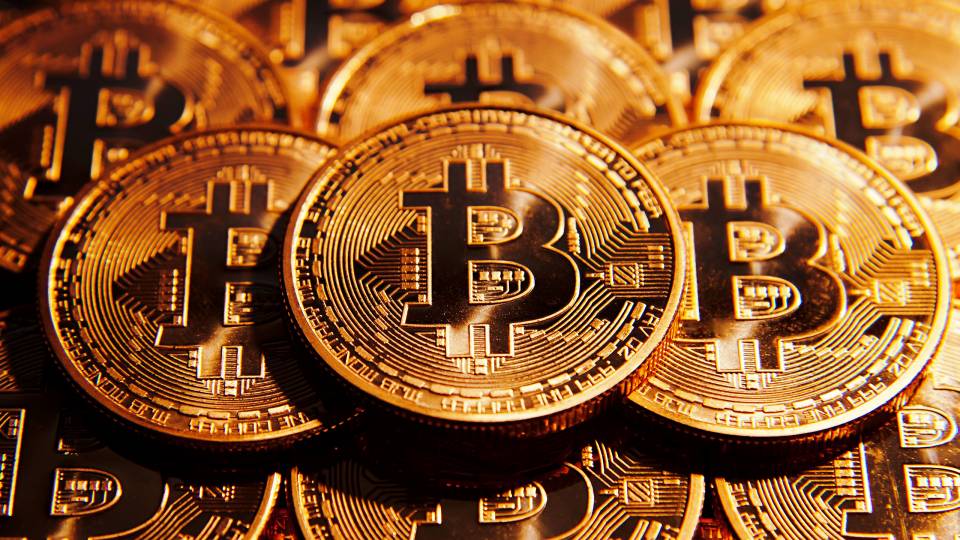As Bitcoin Scrapes $10,000, an Investment Boom Like No Other
Bitcoin is on an extraordinary run, with the price of a single Bitcoin crossing $10,000 on some exchanges for the first time on Monday — less than two months after it crossed $5,000 for the first time.
It is a bull market with few precedents in recent investing history. The Dow Jones industrial average, in its biggest year, 1915, went up 82 percent, or one-tenth as much as Bitcoin has gone up this year. Amazon’s red-hot stock is up only one-fifteenth as much as Bitcoin this year.
The price has been pushed up by a flood of new buyers from around the world who think they have spotted a new kind of investment that could ultimately compete with gold as a place to store money outside the control of companies and governments.
These mainstream investors have not just been the libertarian-minded programmers who helped Bitcoin survive its rocky first seven years, after the mysterious creator Satoshi Nakamoto released it in 2009.
In recent months, trading among ordinary investors has taken off in South Korea and Japan. Seoul now has multiple storefronts where less technically adept people can buy and sell Bitcoin. It was on Korean exchanges where the price of Bitcoin first hit $10,000 on Monday.
On American exchanges, the price was hovering around $9,700 on Monday.
The skyrocketing price has brought forth no shortage of skeptics, from Jamie Dimon, the chief executive of JPMorgan Chase, to Warren E. Buffett, who have variously called it a fraud, a bubble and a Ponzi scheme.
The untethered price increase has, to a degree, proved their point, suggesting that this is an investment tied to few real-world fundamentals.
But each time the skeptics have come forward, investors have defied them and bought more Bitcoins at higher prices. On Sunday, more than $5 billion was traded on Bitcoin exchanges, according to the data site Coinmarketcap.com — a greater volume than what many American stock exchanges see on a normal day.
Believers in the Bitcoin technology, which is backed by a new kind of computer network, have argued that what we are seeing is the formation of a new asset class that could join stocks, bonds and physical commodities in the investment portfolios of ordinary people.
If this is a new digital gold, today’s extraordinary prices still leave the total supply of Bitcoins in the world at a value that is only one-sixtieth of all the real gold in the world.
But even aficionados have been dumbstruck by just how quickly the price has gone up in recent months.
“While there has been a slew of bullish news for Bitcoin of late, the rapidity of the ascent to $10,000 has taken many of us by surprise,” said Chris Burniske, an investor and a co-author of the book “Cryptoassets.”
Or as one trending comment on the Reddit social network put it: “This is officially madness. I am going to prepare myself for a large correction.”
Hedge funds have also been clamoring to get a piece of the action. More than 100 hedge funds invest only in Bitcoin and other virtual currencies.
In many places, this trading is happening on exchanges with little regulatory oversight or transparency. This has given rise to fears that a problem at one of the exchanges could trigger a panicked run on Bitcoin, something that is not unlikely given the relative inexperience of many of the new investors.
A steep rise in the price of Bitcoin in late 2013 was punctured when the biggest exchange at the time, Mt. Gox, was discovered not to have the Bitcoins it claimed to have. That led to a three-year lull in the price.
But current investors see that after all the previous popped bubbles — and there have been several — the price eventually returned to its old high and then vaulted past it. The price of a Bitcoin is now more than seven times the high it reached in 2013.
What’s more, the Bitcoin ecosystem is now more distributed around the world, with less reliance on a single company like Mt. Gox, which collapsed three years ago. While Mt. Gox hosted more than 75 percent of all Bitcoin trading in 2013, the largest exchanges today have only around 10 percent of the business. That should theoretically make the industry less vulnerable to problems at one institution.
Bitcoin has been able to flow around the world and reach investors in countries large and small, because of the singular design that was laid out by its creator.
Bitcoins are stored and traded on a decentralized network of computers that is not under the control of any government or company. That has been attractive to people in countries, like China and Zimbabwe, where the government has a history of seizing bank accounts and assets.
The growing number of people using it in all these countries, often against the wishes of their governments, has also underscored the degree to which the software that manages Bitcoin has remained impervious to hackers and government control for nearly a decade.
The recent price increases, though, have meant that Bitcoin is not living up to its promise as a currency routinely used for small purchases. Few people want to spend their Bitcoins if they believe the price will double in the next month.
Bitcoin has remained popular as a way to pay for illegal drugs online because of the ability to open a Bitcoin wallet without providing any personal information.
But Bitcoin has faced competition on this front from virtual currencies that provide more privacy. And the overall black market trade has diminished this year after the authorities took down some of the largest black market websites in the summer.
This has been welcome news for many Bitcoin backers who want to see it lose its shadowy associations.
Many Bitcoin investors have also come to believe that the Bitcoin network is not particularly well suited to handle lots of little transactions.
These investors frequently argue that what Bitcoin is designed to do well is store money securely and outside the control of any company or government that could seize it, like a more transportable version of gold.
“The reason people own Bitcoin is because it’s a great store of value, possibly the greatest that has ever existed,” said Jimmy Song, a programmer who works on the Bitcoin software.
The last few years have brought a proliferation of virtual currencies that aim to compete with Bitcoin, sometimes with the goal of handling transactions more cheaply and quickly.
This year, it appeared that the most popular virtual currency network other than Bitcoin, Ethereum, might pass Bitcoin in value. At the time, Bitcoin was hobbled by an internal battle over how to update the software and expand the network.
In October, though, one side gave up the fight, and since then the price of Bitcoin has shot up, sometimes rising more in a week than it rose in its first seven years.
In recent weeks, Bitcoin isn’t the only virtual currency that has been moving up. Ether, which lives on the Ethereum network, and Bitcoin Cash, another Bitcoin competitor, have also been rising quickly in value as investors look for anything that might have the same durability and upward mobility as the original.






















